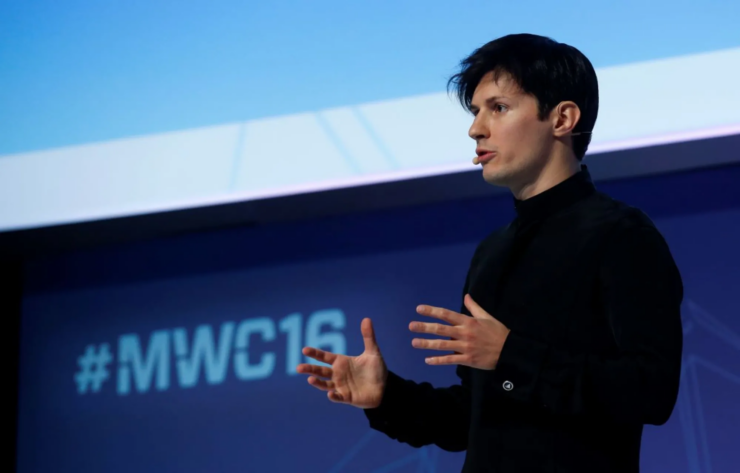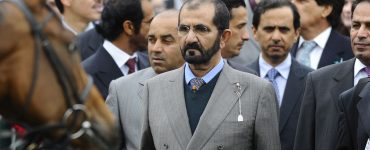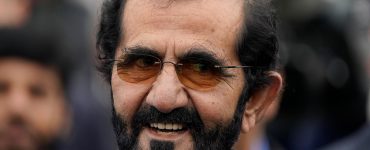Pavel Durov had lunch with the French president six years ago. His phone was hacked the previous year by French and U.A.E. spies.
By Joel Schectman , Matthew Dalton and Alan Cullison
Updated Aug. 28, 2024 3:52 am ET
Durov, by his account, fought to keep governments from controlling Telegram while cultivating his image as an iconoclast.
Six years before Pavel Durov landed in a French holding cell, the antiestablishment founder of the messaging app Telegram was in a very different position in France: having lunch with President Emmanuel Macron.
At the lunch in 2018, which hasn’t been previously re- ported, Macron invited the Russian-born Durov to move Telegram to Paris, people familiar with the discussions said. Durov declined at the time. The French leader even discussed granting French citizenship to him, one of the people said.
On Saturday, French authorities detained Durov in an investigation that poses the most serious threat to the anti-authority ethos of Telegram since the app was founded in 2013. His arrest brought into sharp focus the fraught relationships the 39- year-old Durov has had with governments around the world, that have attempted to woo and control him, often failing at both.
In 2017, the year before the meeting with Macron, French spies targeted Durov in a joint operation with the United Arab Emirates that hacked his iPhone, according to people familiar with the matter. The operation, which hasn’t been previously reported, was code- named Purple Music, the people said. French security officials were acutely concerned about Islamic State’s use of Telegram to recruit operatives and plan attacks.
Governments have targeted Durov because of the groups that were drawn to his app, which range from prodemocracy protesters and dissidents to Islamist militants, drug traffickers and cybercriminals.
For years, the company ignored subpoenas and court orders sent by law-enforcement authorities that piled up in a rarely checked company email address, according to a person close to Durov.
Telegram said it now com- plies with the European Union’s Digital Services Act, which came into force last year and requires online companies to cooperate with authorities in countering the spread of illegal content on their platforms.
This week, the Paris prosecutor’s office said Durov was detained as part of an investigation into whether platforms are enabling online criminality, including the exchange of child pornography, drug trafficking and the sale of unauthorized encryption software. Investigators are examining whether platforms are breaking French law by refusing to cooperate with authorities in countering illegal content.
Prosecutors said they haven’t named Durov or anyone else as a target in their investigation.
There is no indication those earlier discussions with Macron or the hacking of Durov’s phone played a role in his detention, but the details shed new light on Durov’s long and complicated relationship with France and the U.A.E.
France and the U.A.E. granted Durov citizenship in 2021, and the Gulf nation in- vested more than $75 million into his platform that year.
Durov, by his own account, fought to keep governments from controlling Telegram while cultivating his personal image as an iconoclast. He has also used his own account on the app to paint a colorful portrait of his life.
In a post last month, he said he was a multinational sperm donor and had fathered more than 100 children for couples in 12 countries. He recently posted photos of him- self shirtless on his Instagram account, including dipping into an ice bath.
“Fearless curiosity drives innovation,” he wrote in one post, followed by: “The best way to start a day is a few minutes in 0°C water mixed with ice.”
Durov gained early fame in Russia as a tech entrepreneur with a libertarian streak. His political leanings and interest in encrypted messaging systems made him an irritant to Russian and Western security services alike.
In 2006, he started a Face- book-like media site, VKontakte, that quickly gained traction as a useful channel among Russia’s political opposition. The Kremlin demanded information about VKontakte’s users, which Durov resisted. By 2011, the site had become a tool for critics of President Vladimir Putin of Russia to organize mass protests to challenge his rule. The Kremlin began pressuring Durov to sell VKontakte to a confidant to Putin, Igor Sechin. Durov resisted the sale.
Durov was working on a messaging app that would later morph into Telegram. Durov described it as a plat- form with servers around the world that would be essential for anyone trying to evade government surveillance.
Durov left Russia in 2014, saying he faced pressure from the Kremlin to disclose communications of Ukrainian pro- testers. “Providing personal data of Ukrainians to Russian authorities would not only be a violation of the law, but also a betrayal of all those millions of Ukrainians who trusted us,”
he wrote on VKontakte. Afterward, one of VKontakte’s biggest shareholders said Durov was no dissident but a thief, claiming he embezzled money from the company to develop Telegram. Durov has denied the claims. He hopscotched among the Middle East, Europe and the Americas, accumulating pass- ports. In addition to France and the U.A.E., Durov has citizenship in St. Kitts and Nevis, a Caribbean island nation that offers it to those who can pay. He eventually based Telegram
in the U.A.E.
The French passport allowed
him to move freely in Europe, including on a bike trip last year to Normandy, according to his social-media posts. He travelled to the U.S. multiple times, the entrepreneur told former Fox News host Tucker Carlson this year, adding he is always greeted by FBI agents at the airport and elsewhere who tried to obtain his cooperation. “My understanding is they wanted to establish a relation- ship to, in a way, control Tele- gram better,” Durov said.
The FBI declined to comment.
French authorities took him into custody Saturday night after his private jet landed at Le Bourget airport north of Paris. Under French law, authorities have 96 hours, or until Wednesday evening, to question Durov before releasing him or charging him with a crime.
Despite the 2018 visit with Macron, French authorities long viewed Telegram with suspicion. A former French intelligence official from France’s General Directorate for Internal Security said com- promising Telegram had been a long-term effort of the country’s spy services, but didn’t comment on the hacking operation against Durov.
France’s new hard line reflects growing concern, particularly in Europe, about the threat that big digital companies pose to society. Authorities worry Telegram, X, Tik- Tok and other platforms are spreading misinformation, fuelling antisemitism and racism and tolerating illegal commerce on their platforms. A new French law signed this year requires online platforms to cooperate with authorities in rooting out such content.
That law is mirrored by the EU’s Digital Services Act, which subjects “very large” online platforms to enhanced monitoring and enforcement. Telegram said this week that it is still below the threshold of 45 million active monthly users in the bloc to be considered very large.
—Ann M. Simmons contributed to this article.




Add comment